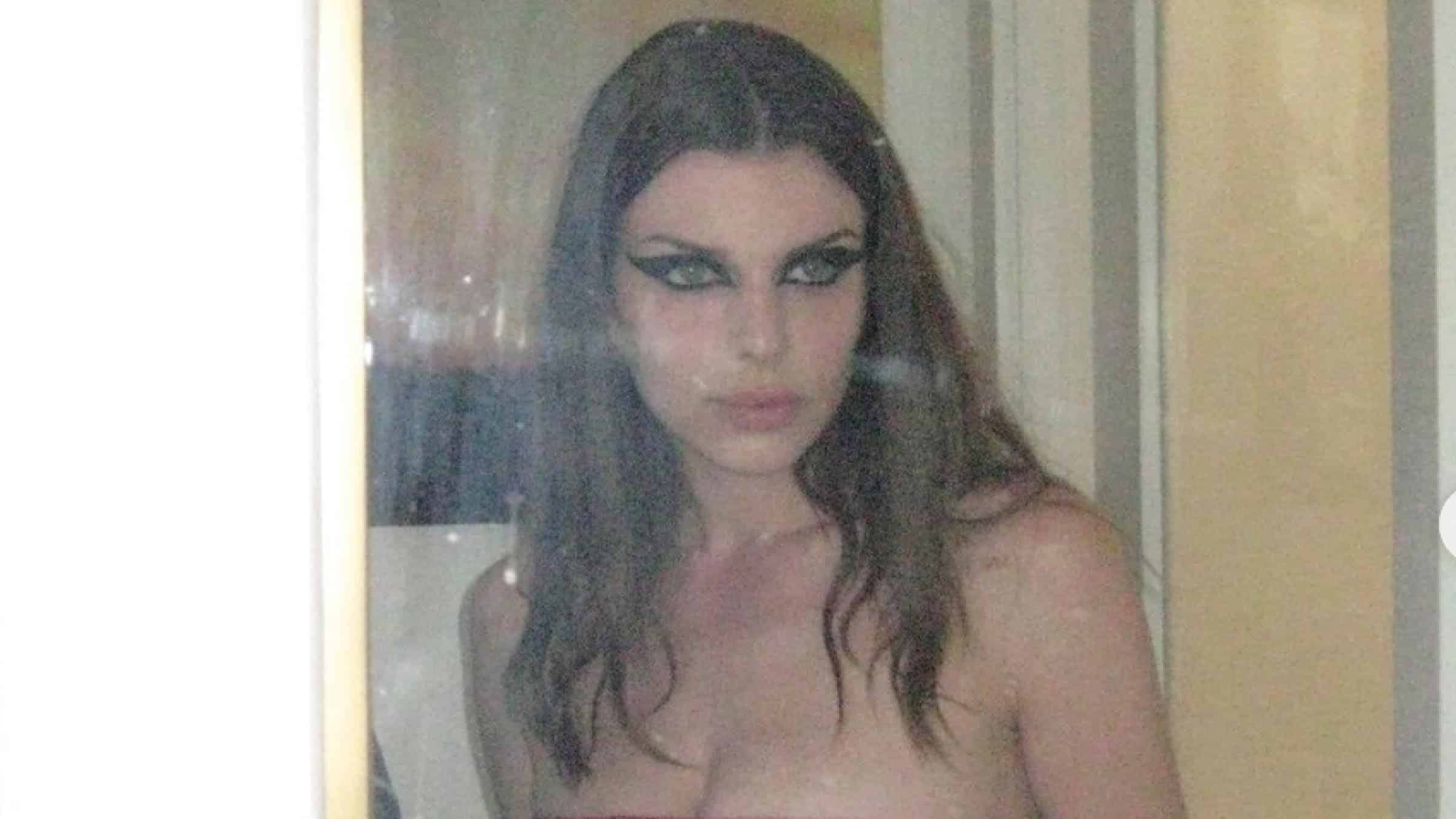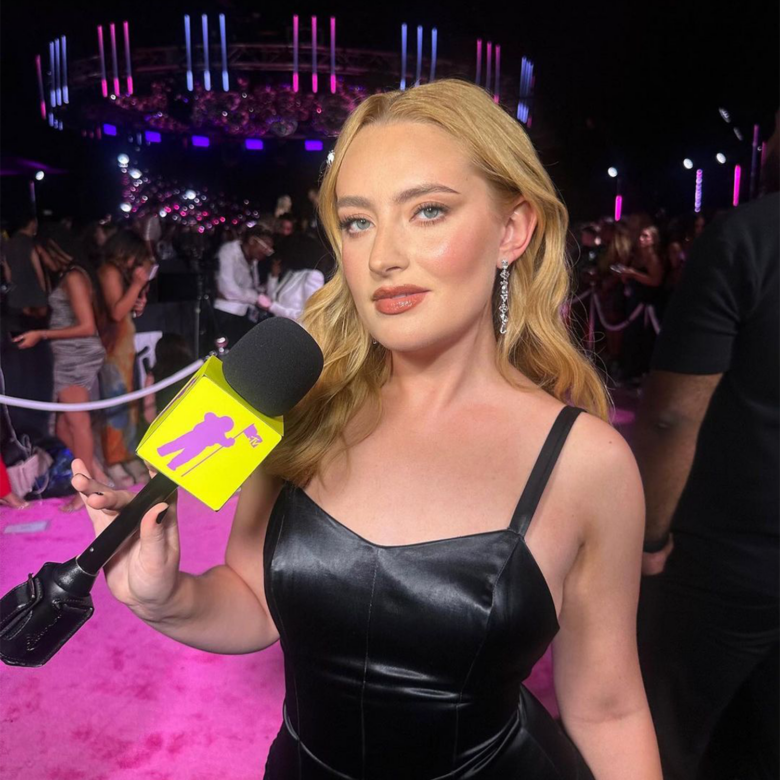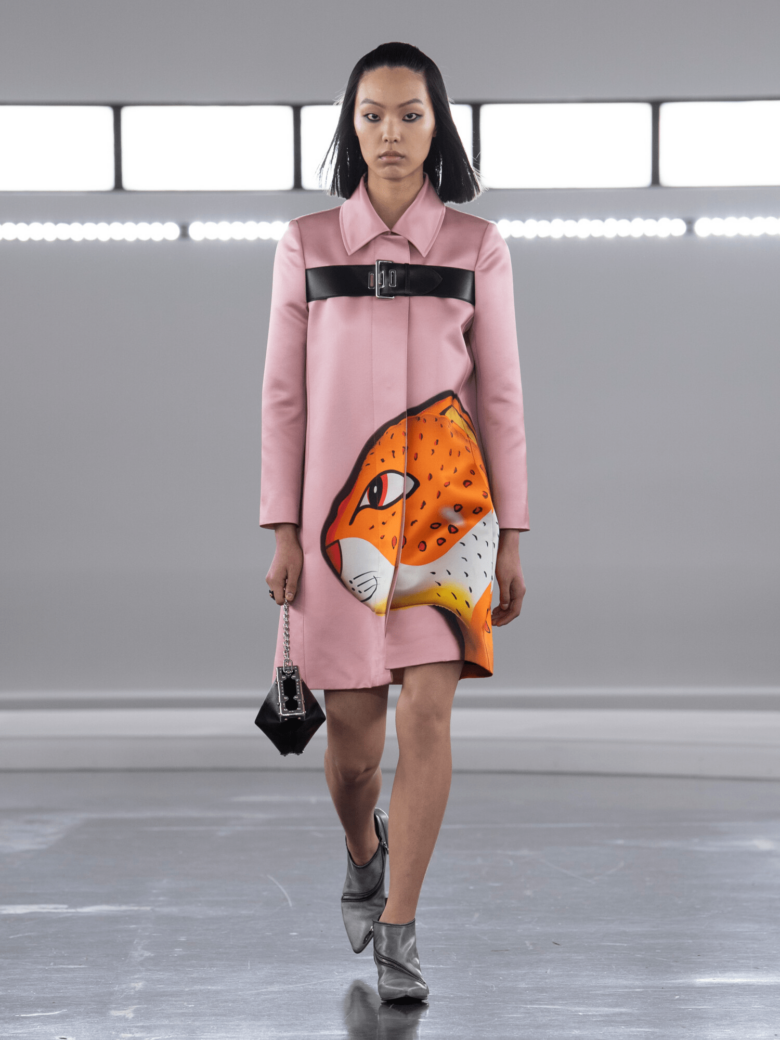‘Ugly’ Beauty is here — but what does it mean to be truly ‘ugly’?

It feels as though ‘ugly’ beauty is having its moment — but perhaps this moment defeats the whole purpose of being ‘ugly’. Julia Fox was recently seen in a TikTok video where she was bleaching her brows at home, saying how her “son’s father gets so triggered… so that’s why I continually do them.” With an IDGAF attitude she explained why she loves the look for keeping unwanted men at bay, saying “it’s kind of like a man repellent. They absolutely hate it.”
In all of the bleach-brow triviality, Fox also faced backlash in her claims as she explored topics like beauty in the natural process of ageing. In the video, she says she will “sue” if she sees “another anti-ageing product”, with some responding to her saying ‘Girl what are you 30? Please’ and ‘Don’t you have botox?’. “There’s nothing wrong with filler or botox” she adds in a reply, “I’ve been down that rabbit hole but all I’m saying is she’s evolved.”
The evolution of beauty in all its ‘ugly’ glory from the perspective of the female gaze is what should be having its moment now more than ever. The ‘ugly’ take requires an understanding of why women find it so liberating, and with an insight from one of Instagram’s leading visual makeup artists, HUNGER posits why embracing the true ‘ugly’ side of beauty is much more than bleached brows, ‘meth teeth’ or clumpy mascara.
“Ugly is just an empty word which can be filled with any meaning” says London-based artist and creative at The Unseen Beauty Eszter Magyar, also known as MakeupBrutalism on Instagram. “On social media ‘ugly’ usually means irregular, but for me, irregularity is way more exciting than predictable beauty”.
For Magyar however, her work is much more than just beauty, self-describing as “mixing human aesthetics with social criticism.” It is when the questions of aligning politics with her work that the meaning behind the mask revealed itself, and she tells HUNGER that it is a “feminist approach; radicalising the female gaze. Beauty shouldn’t be a democracy as it is now, with the majority deciding what is beautiful and what is cool.”
Because beauty has so often been ruled by the male gaze, the relatively new theory of the female gaze is still in its infancy. That leads to questions of whether, as women, it is being done properly, and in turn, if privilege is playing a role in this. Does standardised ‘hotness’ discount this effort? Are we still centring men by consciously subverting their norms?
When asked about her work as a new trend, Magyar responds by saying when “it became a trend (yet again) it’s good – because there is a lot of interest in my work, but on the other hand, the trend is sad for me. I’m not going against conventional beauty standards to be trendy, I’m going against them because I truly believe those are harmless and toxic.”
Boasting 113k followers, she is known for her responses to hate on her social media. She recognises the response to her art is “Black and White. My method is not to waste a single reaction, everything is good for me.” But Magyar feels more creative than ever when she receives a backlash. Her projects rely on it, for example, “the ‘This Is Not’ series.
Although celebrities like Fox have adopted ‘ugly’ beauty alongside social narration, the subculture of these new practices must be understood from the perspective of the female gaze. Magyar has transformed herself into her project MakeupBrutalism to contend with standards, and her questioning of conventional beauty from the female perspective remains the heart of her creations.
Magyar acknowledges that this pursuit requires “a lot of bravery, especially if you realise it does not lead you to automatic success. Being unapologetically yourself is often not cool enough. It is a slow process to become yourself.”

